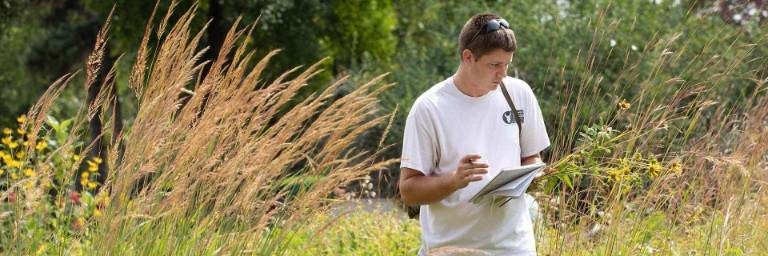Biology Ph.D.
Immerse yourself in the study of living organisms, conduct original research and prepare to succeed as a scholar or researcher.
A changing world demands scientists with advanced skills and the ability to solve problems. The Ph.D. in Biology at UND combines excellence in academics with world-class facilities and research opportunities.
- Program type:
- Doctoral Degree
- Format:
- On Campus
- Est. time to complete:
- 4-6 years
- Credit hours:
- 90
What makes UND one of the best biology Ph.D. programs?
Biology Ph.D. Programs at UND
-
Conduct original, independent research and publish your findings in peer-reviewed outlets.
-
Work in state-of-the-art facilities including vertebrate and invertebrate museums, tissue culture facilities, molecular biology labs, four field stations and expansive landscapes of the northern plains.
-
Enjoy financial support from a teaching assistantship, research assistantship or fellowship/traineeship.
-
Join organizations such a the Wildlife Society and North American Vascular Biology Association (NAVBO).
-
You'll have the opportunity to tailor your coursework to your primary areas of research, whether it's it's conservation biology, grassland ecology, wildlife parasites, or genomics and computational biology.
-
Study at a Carnegie R1 Institution ranked #144 by the NSF. In 2025, just 187 American universities held the R1 status.
What can I do with a biology Ph.D.?
Biology Ph.D. Courses
Biology Research
Immerse yourself in high-level research at state-of-the-art facilities and in the field.
